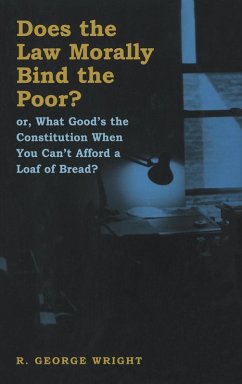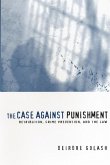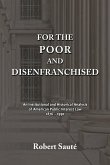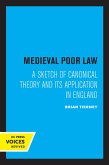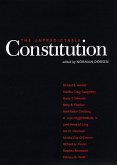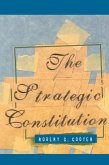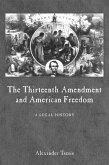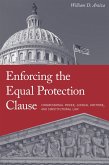In Does Law Morally Bind the Poor? or What Good's the Constitution When You Can't Buy a Loaf of Bread?, author R. George Wright argues that while the poor live in the same world as the rest of us, their world is crucially different. The law does not recognize this difference, however, and proves to be inconsistent by excusing the trespasses of persons fleeing unexpected storms, but not those of the involuntarily homeless. He persuasively concludes that we can reject crude environmental determinism without holding the most deprived to unreasonable standards.
Dieser Download kann aus rechtlichen Gründen nur mit Rechnungsadresse in A, D ausgeliefert werden.

